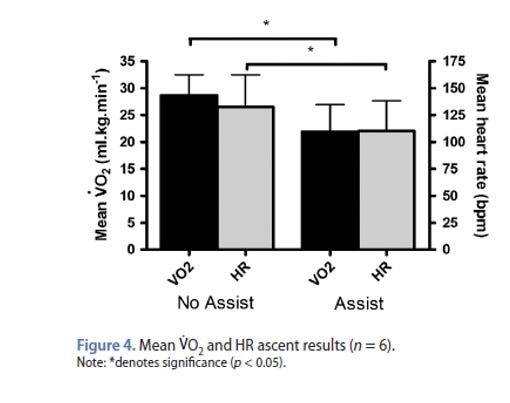Anyway, we recently noted that Robert Gordon's University has been putting some numbers that reinforce the exertion side of that equation. In its October 2016 paper titled "The physiological effect of a ‘climb assist’ device on vertical ladder climbing", it states that "heart rate (HR), O2 and rate of perceived exertion (RPE) all decreased significantly (p < 0.05) with climb assist with O2 decreasing by 22.5%, HR by 14.8% and RPE decreasing by a mean of 2.3 units on the 10-point Borg scale. When descending the ladder O2 decreased by a mean of 42% compared to that ascending. At the minimal acceptable climbing speed climb assist decreases the physiological strain on climbers, as demonstrated by reduced O2, HR and perceived exertion.


